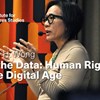ties
The intersection of class origin and immigration background in structuring social capital: the role of transnational ties
The British Journal of Sociology, vol 69, no 1, pp 99-123, doi: 10.1111/1468-4446.12289. Abstract The study investigates inequalities in access to social capital based on social class origin and immigra
Education and Research in Times of Population Ageing
The goals of growth and competitiveness as promoted by the European Union are discussed in the context of forecasts claiming the European population to be declining in size and growing increasingly ol
Three tips for researchers who want to provide advice in a crisis
Anders Tegnell at Folkhälsomyndigheten became one of the most well-known experts during the covid 19-pandemic in Sweden. Photo: Frankie Fouganthin/Wikimedia. In crises, politicians often turn to expert
Experiences matter: A longitudinal study of individual-level sources of declining social trust in the United States.
Social Science Research 95 Abstract The US has experienced a substantial decline in social trust in recent decades. Surprisingly few studies analyze whether individual-level explanations can account for
Wendy H. Wong: We, the Data: Human Rights in the Digital Age
Venue: Institutet för framtidsstudier, Holländargatan 13, 4th floor, Stockholm, or online. Research seminar with Wendy H. Wong, Professor of Political Science and Principal's Research Chair at the UniveThis talk will discuss some of the key themes from We, the Data: Human Rights in the Digital Age, which is a new book published by MIT Press. Human rights are one of the major political innovations of the 20th century. Their emergence after World War II and global uptake promised a new world in which human autonomy, community, dignity, and equality could be protected. Datafication, however, poses some unique challenges for our human rights framework because they are “sticky” and ubiquitous in emerging technologies such as artificial intelligence (AI). The talk focuses on five takeaways from the book that ties AI and data to human rights.

Wendy H. Wong: We, the Data - Human Rights in the Digital Age
Research seminar with Wendy H. Wong, Professor of Political Science and Principal's Research Chair at the University of British Columbia. In this talk Wendy H. Wong discusses some of the key themes fr

Klaus Georg Hansen: Greenland – 300 years of colonisation
Since the formal colonisation of Greenland in 1721 by the Norwegian-Danish missionary Hans Egede Greenland has experienced five 'constitutional' breaks. Thus, seven distinct colonial eras can be ident
What to lobby on? Explaining Why Large American Firms Lobby on the Same or Different Issues
Business and Politics Abstract What determines whether or not firms lobby on the same policy issues? Scholars offer two broad answers to this question. Firms that are (1) similar or (2) connected throug
Completed: Crossing boundaries in social work. Collaborative partnerships and interventions towards particularly vulnerable areas in Sweden
The study explores welfare governance in relation to disadvantaged areas in Sweden. The project aims to contribute with knowledge about how to build trust, promote safety, and break a negative societal development.
Research seminar with Johanna Rickne: The Class Ceiling in Politics
Venue: Institutet för framtidsstudier, Holländargatan 13, 4th floor, Stockholm, or online.Research seminar with Johanna Rickne, professor of Economics at SOFI, Stockholm University.Register hereAbstracPrior studies have documented that working-class individuals rarely become parliamentarians. We know less about when in the career pipeline to parliament workers disappear, and why. We study these questions using detailed data on the universe of Swedish politicians’ careers over a 50-year period. We find roughly equal-sized declines in the proportion of workers on various rungs of the political career ladder ranging from local to national office. We reject the potential explanations that workers lack political ambition, public service motivation, honesty, or voter support. And while workers’ average high school grades and cognitive test scores are lower, this cannot explain their large promotion disadvantage, a situation that we label a class ceiling. Organizational ties to blue-collar unions help workers advance, but only to lower-level positions in left-leaning parties. We conclude that efforts to improve workers’ numerical representation should apply throughout the career ladder and focus on intra-party processes.








